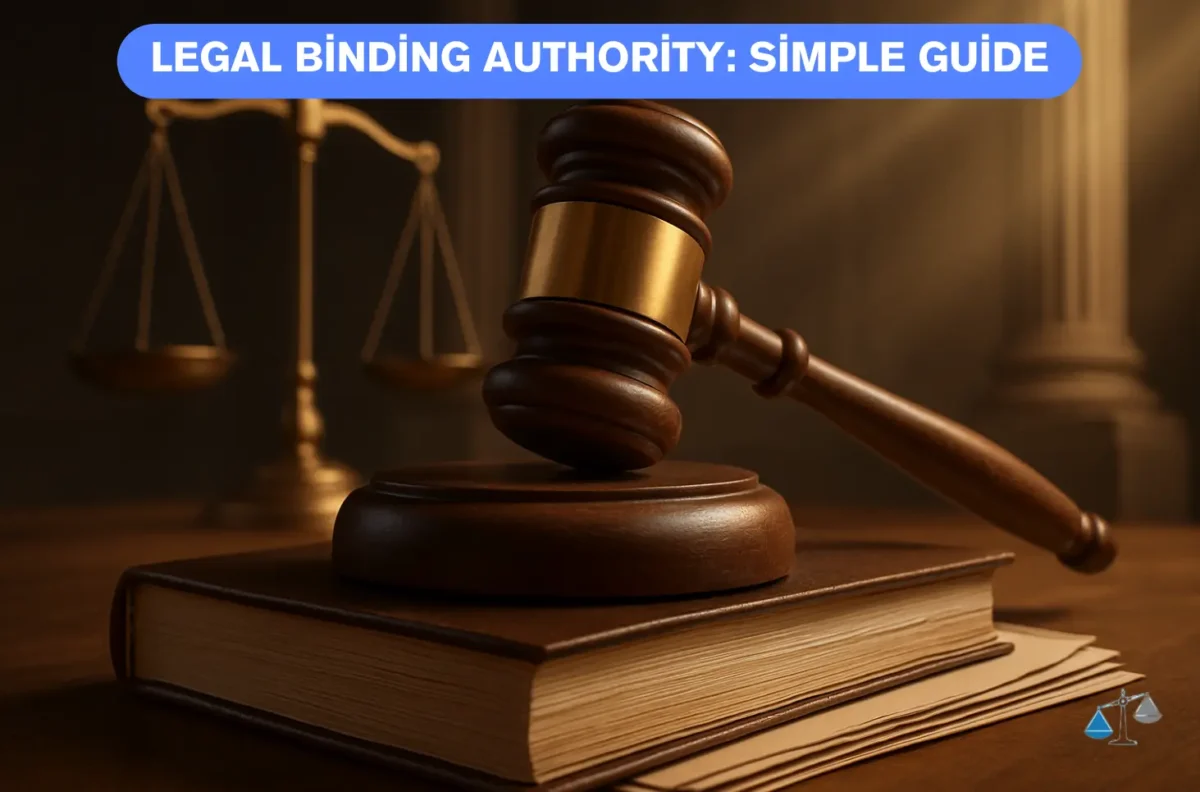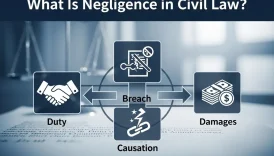Legal Binding Authority: Definition and Examples

- Legal Binding Authority: Definition and Examples
- What Is Binding Authority?
- Legal Basis of Binding Authority
- Examples of Binding Authority
- Why Legal Binding Authority Matters
- FAQs About Legal Binding Authority
- 1. What is the difference between binding and persuasive authority?
- 2. Does every court decision create binding authority?
- 3. Can a court overrule its own binding authority?
- 4. How does binding authority affect judges’ decisions?
- 5. Why is binding authority important in common law systems?
- Table of Contents For Binding Authority
- Keywords for Legal Binding Authority
What Is Binding Authority?
Simple definition of legal binding authority: it refers to legal sources—such as statutes, constitutions, or court decisions—that courts are obligated to follow when making rulings. In legal terms, binding authority sets mandatory precedents that judges must apply to ensure consistency, fairness, and predictability in the justice system.
Legal Basis of Binding Authority
Binding authority is a foundational concept in the doctrine of stare decisis, meaning “to stand by things decided.” Under this principle, lower courts must follow the decisions of higher courts within the same jurisdiction.
The hierarchy of courts determines what qualifies as binding. For example, U.S. Supreme Court rulings bind all federal and state courts, while state supreme court decisions bind lower state courts. This structure maintains uniformity in how laws are interpreted and applied.
Examples of Binding Authority
Binding authority arises from multiple legal sources that guide judicial reasoning and decision-making. Common examples include:
- Constitutions
- The U.S. Constitution and state constitutions are the highest sources of binding authority.
- Courts must interpret all laws in accordance with constitutional principles.
- Statutes and Regulations
- Federal and state statutes passed by legislatures are binding within their respective jurisdictions.
- Administrative regulations issued under proper authority also hold binding power.
- Judicial Precedent
- Decisions by higher courts, such as appellate or supreme courts, create binding precedent for lower courts handling similar cases.
- For example, a decision by the U.S. Supreme Court interpreting a federal law must be followed by all federal courts.
- Treaties and International Law (in Certain Cases)
- Ratified treaties approved by Congress can have binding legal effect in domestic courts, especially in areas of foreign relations or trade.
- Local Ordinances
- Municipal laws enacted under state authority bind residents and local courts within the city or county.
Why Legal Binding Authority Matters
Legal binding authority ensures stability, consistency, and equality before the law. Without it, judges could issue conflicting rulings on identical issues, leading to confusion and injustice.
It also strengthens public trust in the legal system by showing that decisions are based on established rules rather than personal opinions. By adhering to binding authority, courts preserve the rule of law and maintain an orderly, predictable judicial process.
FAQs About Legal Binding Authority
1. What is the difference between binding and persuasive authority?
Binding authority must be followed by a court, while persuasive authority can be considered but is not mandatory. For example, a decision from another jurisdiction may influence a judge but is not binding. This distinction allows flexibility while maintaining legal consistency.
2. Does every court decision create binding authority?
No. Only decisions from higher courts within the same jurisdiction are binding. Lower court rulings may be persuasive but do not establish mandatory precedent. Appellate and supreme court decisions carry the greatest binding weight.
3. Can a court overrule its own binding authority?
Yes, but only in limited circumstances. Higher courts, such as a supreme court, can overturn previous rulings if they believe the earlier interpretation was wrong or outdated. When that happens, the new decision becomes the binding precedent going forward.
4. How does binding authority affect judges’ decisions?
Judges must apply existing binding authority even if they personally disagree with it. This ensures consistency across cases and prevents subjective decision-making. Ignoring binding authority can lead to appeal and reversal.
5. Why is binding authority important in common law systems?
Because common law evolves through judicial decisions, binding authority ensures that legal principles develop logically and predictably. It promotes fairness and helps citizens and lawyers understand how the law will likely be applied in future cases.
Table of Contents For Binding Authority
Keywords for Legal Binding Authority
- Legal Binding Authority
- Legal Basis of Binding Authority
- Examples of Legal Binding Authority
- Legal Binding Authority Simple Definition
- Legal Bindig Authority Meaning






